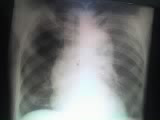jeudi 9 juin 2011
Agir Ensemble comments for Civil Society Interactive Hearing for UN summit on NCDs
On behalf of AGIR ENSEMBLE, a NGO based in Goma/DRC, member of UICC and FCA, I would like to share
with you our views on the possible outcomes of the Summit and propose the following specific
recommendations to be incorporated in the final Outcomes Document that will be endorsed by UN member
states at the High-level Meeting on NCDs.
Our organisation has been extensively involved in cancers and tobacco controls.
From our own experience, we believe that civil society has been instrumental in promoting strong cancer
and tobacco control measures, overseeing their implementation, and fostering public support for
governments’ cancers and tobacco control policies.
Yet more needs to be done. More than 8 million people die each year by cancer and 6 million annually
due to global tobacco use and WHO-GLOBOCAN data base shows that cancer is the leading cause of
mortality in developing country including DRC and cervical cancer takes the first place. Cervical cancer is
100% avoidable but it continues to kills women in developing countries; so programs of screening and
vaccination against HPV must be implemented in all countries to avoid these avoidable deaths.
Tobacco use is the only risk factor common to the four major groups of NCDs. As a result, implementing the
tobacco control measures specified in the World Health Organization (WHO) Framework Convention on
Tobacco Control (FCTC) – which has more than 170 Parties representing 87% of the world’s population – is
one of the best ways to tackle NCDs. The UN Secretary-General Report on NCDs reaffirms the effectiveness
and efficiency of the key interventions in the WHO FCTC.
We would like to strongly encourage all UN member states to adopt an outcomes document that reflects
positions adopted by the civil society movement - the NCD Alliance - and specifically:
· Calls on countries that have not yet done so, to ratify the FCTC. Key tobacco control interventions
of the WHO FCTC are not only highly cost-effective but also cheap, feasible and culturally acceptable
to implement.
· Commits member states to ensure that their government cooperates actively to accelerate the
implementation of the strategies to control and treat NCDs.
· Sets a short-term global target for prevalence of NCDs and tobacco use that is both ambitious and
achievable and calls on all governments to set national/regional targets which should be revised
regularly. Monitoring trends and progress is essential to ensuring that commitments are honoured.
· Calls on all governments to integrate NCDs in all relevant national plans for health, development
and poverty reduction, and strongly encourages global investment in some key strategies to
reduce prevalence and incidence of NCDs like FCTC implementation, screening for cervical cancer,
vaccination programs for HPV and HBV including technical and financial assistance and scientific
research.
· Calls on all governments to recognise the importance of NCDs and all risk factors to the
achievement of the Millennium Development Goals (MDGs), integrate FCTC implementation,
screening for cancer, vaccination programs for HPV and HBV into development assistance
programmes and the planning processes of UN, bilateral and multilateral development agencies.
NCDs are a growing threat even in the poorest countries in the world, with socioeconomic impacts
that threaten the attainment of the MDGs. Full-scale action on NCDs and the development of global
and national targets and indicators are crucial steps to prevent the NCD epidemic from becoming a
severe health emergency.
Best regards,
Mateus Kambale Sahani, M.D.
AGIR ENSEMBLE/DRC
Inscription à :
Articles (Atom)














